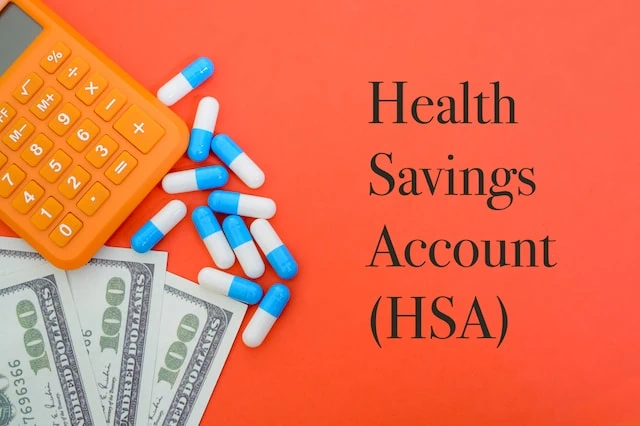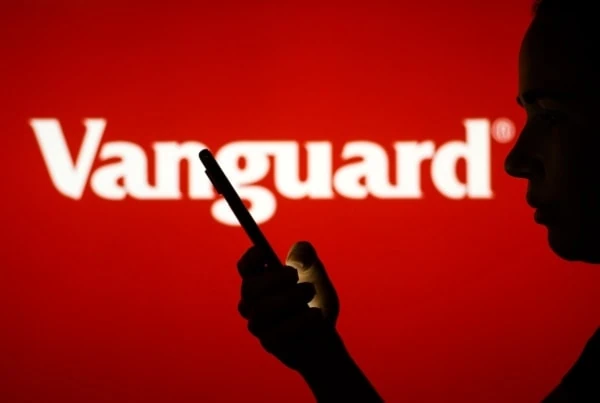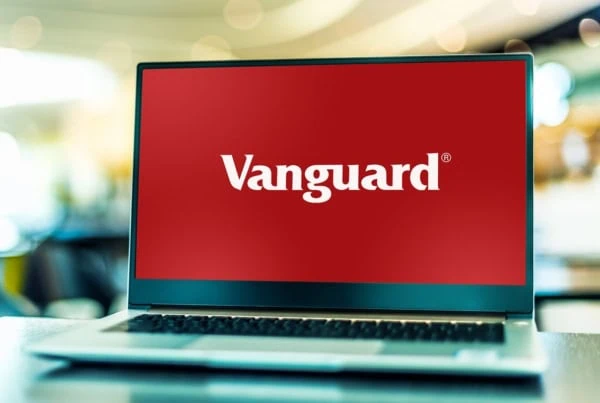A health savings account (HSA) is a tax-advantaged investment account for medical savings available to U.S. taxpayers who meet eligibility requirements.
These accounts differ from FSAs, which employers set up on behalf of employees and must have the contributed funds get used within a predetermined time frame.
For many people, an health savings account can serve as an extremely strategic investment. But who is allowed to open one? How much can you contribute? What makes one HSA better than another? Keep reading for answers to these questions and more.
Related: Best HSA Providers
What Are the Benefits of an HSA?
According to a recent American Journal of Public Health study, almost 60% of bankruptcies in the U.S. can point to excessive medical bills as the primary contributing factor. Unexpected health emergencies can affect anyone, so it’s essential to be prepared. For medical expenses, an HSA is superior to a standard savings account because of the numerous tax benefits.
HSAs have what is considered a triple tax benefit:
- Contributions to health savings accounts are tax-deductible (up to the annual HSA contribution limit)
- Returns earned in the account are tax-free
- You pay zero tax on withdrawals for qualifying medical expenses (certain states charge state income taxes).
Note that many dental expenses qualify for this distinct category of expenses. Further, you can also use these funds for your children while they are aged 24 and younger and still claimed as a dependent on your tax return.
Since these accounts can earn returns if you invest your contributions within the HSA, they work well as a long-term investment. Deducting HSA contributions can significantly reduce the taxes paid that year, resulting in greater account balances, all else equal.
Any unused money rolls over to the following year indefinitely. At age 65, you can withdraw money for non-medical uses without facing any penalty, only the usual federal tax rate at which you would pay on a withdrawal made from a tax-deferred investment plan.
People who don’t anticipate using the funds earlier consider it a type of secondary retirement fund in addition to an individual retirement account (IRA). You never have to take distributions before you’re ready.
Flexibility is key to HSA owners. Individuals own these accounts, not their employers. Further, you can easily transfer the account if you switch jobs. Employers can set up an account for you and add contributions, but you are still the owner.
Full-time independent contractors especially benefit from owning the account as they don’t receive healthcare from an employer.
Related: How to Use Your HSA for Retirement
What Are the Eligibility Requirements for an HSA?
There are restrictions on who is able to open an HSA. Only people who are currently enrolled in a qualifying High-Deductible Health Plan (HDHP) are eligible.
The 2025 minimum annual qualifying deductible for an HDHP for people with self-only coverage is $1,650 ($1,700 for 2025). For family coverage, it is $3,300 ($3,400 for 2026).
Ask your preferred healthcare provider if your health plan (or potential plan) works with an HSA. Also, you might ask yourself if choosing a HDHP to have access to an HSA makes sense for you.
One special limitation to know about health savings accounts, you cannot open an account while receiving Medicare (Part A and Part B), Medicaid, or if you have any other supplemental health insurance coverage.
You also cannot be claimed as a dependent on someone else’s tax return.
Therefore, to open a health savings account, you will need to do so prior to turning age 65 and receiving coverage under Medicare.
For those able to do so and who have made contributions, they can use the money at any age. This applies so long as your contributions occur while following these requirements. In subsequent years you can use this money, even without an HDHP.
Related: HSA Rollover: How to Transfer HSA Funds to a New Provider
How to Choose an HSA Right for You
When deciding which HSA is the best option for you, there are several factors to consider. Some of these include:
- All applicable fees. Some providers charge for opening and/or closing accounts, paper statements, monthly maintenance, and more.
- Interest rates. (The higher, the better).
- Investment options. Some accounts merely act as high-yield savings accounts while others feature investment options.
- Level of convenience.
- Customer service. How easy is it to find answers to your questions?
We’ll be taking Lively as an example as we go through the factors to consider. We will walk through all of the items bulleted above and see how this HSA provider offers value to its users.
→ Health Savings Account Fees
It’s important to consider all the fees that can be associated with health savings accounts. The more fees you pay, the less overall money you’ll be able to accumulate in your HSA.
Lively charges no monthly fees and is always free for families and individuals.
There aren’t any hidden fees or costs. For retail users of the service (families and individuals), this sounds like a win.
→ Available Interest Rates
When comparing HSAs, higher interest rates will earn you more money.
As of July 4, 2022, Lively’s interest rate is 0.01%.
Compared with most available options, like certificates of deposit, savings accounts, and other deposit accounts, Lively offers rates in line with the market.
→ Investing in an HSA
Typically, investing your HSA money is more profitable than putting it in a saving account. Therefore, you may want to choose an HSA with this option. Lively offers two investment options.
One is an HSA Guided Portfolio by Devenir. It provides personalized suggestions and allows you to choose from a curated menu of low-cost funds across asset classes.
This investment strategy is low maintenance and is automatically rebalanced. It has no minimum requirement and a 0.50% annual fee.
Compared to some HSAs I’ve used through a handful of employers, this no minimum is impressive and the assets under management fee for guided investing is roughly in line with what I’ve seen.
For a full fee schedule for individuals who use Lively, see the chart below:
The second option is a Self-Directed Brokerage Account by TD Ameritrade. This choice offers investors a wide range of stock, bond, and fund options and allows them to design and manage their ideal portfolio.
There are more than 550 commission-free ETFs and over 13,000 mutual funds available. In addition to no minimum requirement, there is no access fee and $0 commissions for online trades of U.S. exchange-listed stocks, common elements for what you find on free stock apps.
You can also grant your financial advisor access to your portfolio through the “Advisor Authorization Form.”
→ Convenient Account Access
For your convenience, in addition to desktop, Lively is available on mobile iOS and Android devices. You can manage your account at any time. If you enjoy the option of checking your finances from your phone, make sure to get an HSA like Lively that’s easy to check from mobile devices.
→ Customer Service and Support
When you have questions about your account, you want to be able to contact your HSA provider easily. Lively can be reached both by phone or by email. Choose an HSA provider that lets you contact them with your preferred method.
→ How Do I Get Started with Lively?
You can get started with Lively in three steps:
- Open your account and fill out your basic information.
- Answer whether or not you have an HSA you want to rollover.
- After your account is finalized in one to two business days, you can log in and start saving.
- Maintenance/other recurring fees: None
- Investment fees: Schwab Health Savings Brokerage Account: $24/yr*. HSA Guided Portfolio: 0.50%/yr.
- Minimum balance to invest: $0
- Investment options: Stocks, bonds, mutual funds, ETFs (investments depend on account type)
- Maximum investment flexibility via self-directed Schwab HBSA
- No minimum balance to invest
- Low fees for mutual funds available in HSA Guided Portfolio
- Powerful, intuitive mobile app
- Bill pay
- FDIC-insured cash accounts
- SIPC-insured investment accounts
- High Trust Pilot Rating (Especially relative to competitors)
- HSBA fees are high (on a percentage basis) for low- to mid-balance accounts.
- HSA Guided Portfolio fees are high (on a percentage basis) for mid- to high-balance accounts.
Final Thoughts
If you’re enrolled in a high-deductible health plan, a health savings account can reduce your overall health-related costs as well as double as retirement savings. As a triple tax benefit, this type of account can keep more money in your pockets than a standard savings account.
Remember that you can only open and contribute to an HSA when you’re enrolled in a high-deductible health plan, but you can use the funds in future years even if you no longer have a high-deductible plan.
For 2025, the HSA contribution limit if you have self-only coverage is $4,300 and $8,550 if you have family coverage ($4,400 and $8,750, respectively, for 2026). You can pay for the year up front or set up recurring payments.
If you are age 55 or older, you can add an extra $1,000 as a “catch-up contribution.”
Lively is a top choice for an HSA because there are no hidden fees and you have flexibility in your investment options. Perhaps the greatest benefit of an HSA is the peace of mind it provides.
Investing in a high-quality HSA ensures that, should a medical emergency arrive, you’re prepared.
[NOTE: The information in this article about Lively’s HSA is based on a product review from July 2022. Fees, interest rates, investment options, and other specifics may have changed since then.]
Related:










![6 Best Money Market Funds [Protect Your Savings, 2026] 15 a businessman protects his savings in the safe.](https://youngandtheinvested.com/wp-content/uploads/money-market-funds-safe-safety-security-1200-600x403.webp)

